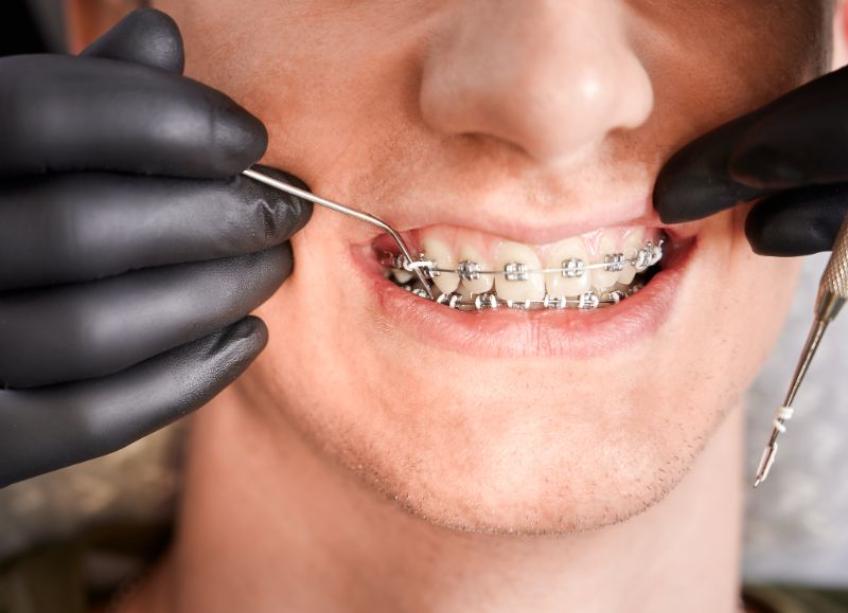Can Titanium Dental Implants Give You Cancer?
Dental implants are one of the most popular tooth replacement options. They are a risk-free and effective way to replace a missing tooth, improve bite function, and boost self-esteem. However, as with any medical procedure, there are concerns and questions about dental implants' potential risks and side effects. One of the most frequently asked questions is whether dental implants can cause cancer. In this blog, we will look at the evidence and discuss whether dental implants can cause cancer.
To begin, it is critical to understand what dental implants are and how they function. Dental implants are titanium posts inserted surgically into the jawbone to replace a missing tooth or teeth. Once the implant is in place, a custom-made crown that looks and functions like a natural tooth is attached to the top of the post. With a success rate of around 95%, dental implants are regarded as a safe and effective treatment option for tooth loss.
What is Titanium?
Titanium dioxide is a colourless, odourless, and tasteless compound that is widely used in a variety of industries such as food, cosmetics, and medicine. It is a naturally occurring mineral that can be extracted from a variety of minerals, including ilmenite and rutile. Because of its biocompatibility and high strength-to-weight ratio, titanium dioxide is commonly used in dental implants. However, there have been concerns raised about titanium dioxide's potential carcinogenic effects, particularly in dental implants.
How Harmful is Titanium Dioxide?
The fear that dental implants will cause cancer stems from the fact that titanium is a metal that has been shown in some studies to be potentially carcinogenic. Titanium dioxide is found in a wide range of consumer goods, including toothpaste, sunscreen, and food additives. It has been classified as a Group 2B carcinogen by the International Agency for Research on Cancer (IARC), which means that it may cause cancer in humans. This classification is based on animal studies that show high levels of titanium dioxide exposure can cause lung tumours in rats. It is important to note, however, that the levels of titanium dioxide used in these studies were much higher than those used in dental implants, and the results may not be applicable to humans. Several studies have been conducted to investigate the possible carcinogenic effects of titanium dioxide in dental implants. In 2020, a review of the literature found no evidence that titanium dioxide causes cancer in dental implant patients. While titanium dioxide particles can be released from implants during surgery or normal wear and tear, the levels are typically very low and unlikely to cause harm, according to the authors.
It is important to note, however, that the IARC classification of titanium dioxide was based on inhalation exposure rather than implantation. The studies that linked titanium dioxide to cancer focused on the effects of inhaling the particles rather than having the metal implanted in the body. Titanium is a medical-grade material that has been thoroughly tested and proven to be safe for use in the human body.
Titanium has, in fact, been used in medical and dental implants for over 50 years. It is biocompatible, which means that the body does not reject it, and it has a high success rate in dental implant procedures. Titanium implants have been used in millions of patients around the world, and there is no conclusive evidence linking them to cancer.
What do Case Studies Suggest?
Furthermore, a 2019 study published in the Journal of the American Dental Association found no evidence of increased cancer risk in patients with dental implants. The study analysed data from over 56,000 patients who received dental implants between 2001 and 2016 and discovered no significant difference in cancer incidence between patients with and without dental implants. To ensure their safety and effectiveness, dental implants are subjected to rigorous testing and regulation. Before a dental implant can be used, it must first go through extensive preclinical and clinical testing to determine its biocompatibility, stability, and safety. The Food and Drug Administration (FDA) in the United States requires dental implant manufacturers to provide detailed information on the materials used in their products as well as conduct clinical trials to assess their safety and effectiveness.
It is also worth noting that other factors, such as smoking, alcohol consumption, and exposure to environmental toxins, can all contribute to the development of cancer. These factors have been extensively researched and found to increase the risk of various types of cancer. There is, however, no evidence that dental implants are a significant risk factor for cancer.
Conclusion
Finally, the evidence indicates that dental implants do not cause cancer. While titanium dioxide has been designated as a possible carcinogen, the studies that have linked it to cancer have focused on the effects of inhalation exposure rather than implantation. Medical-grade titanium is a safe and biocompatible material that has been used in dental implants for over 50 years with no conclusive evidence of cancer. Patients thinking about getting dental implants should talk to their dentist about any concerns they have, but they can rest assured that the risk of developing cancer from dental implants is extremely low.

